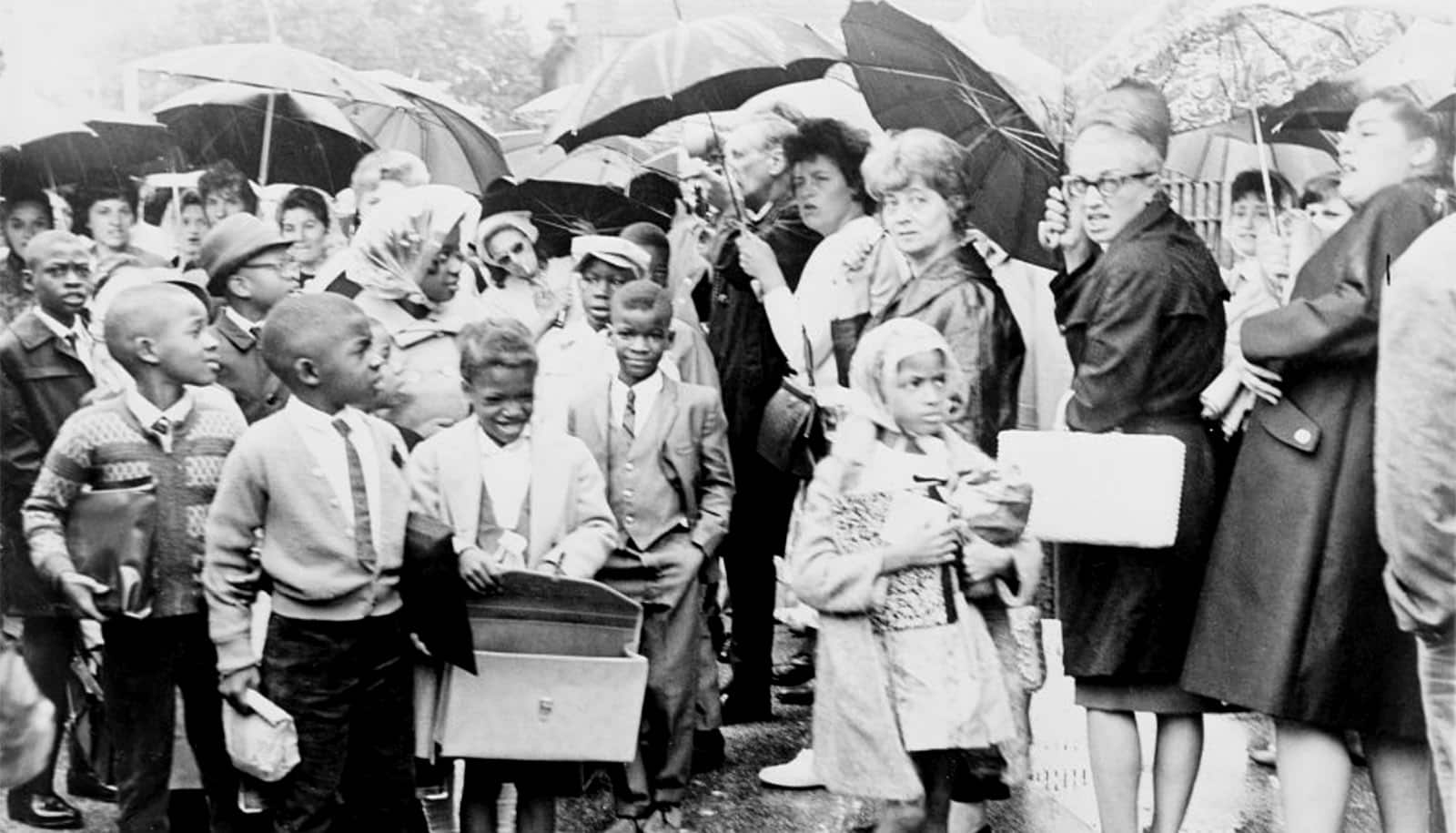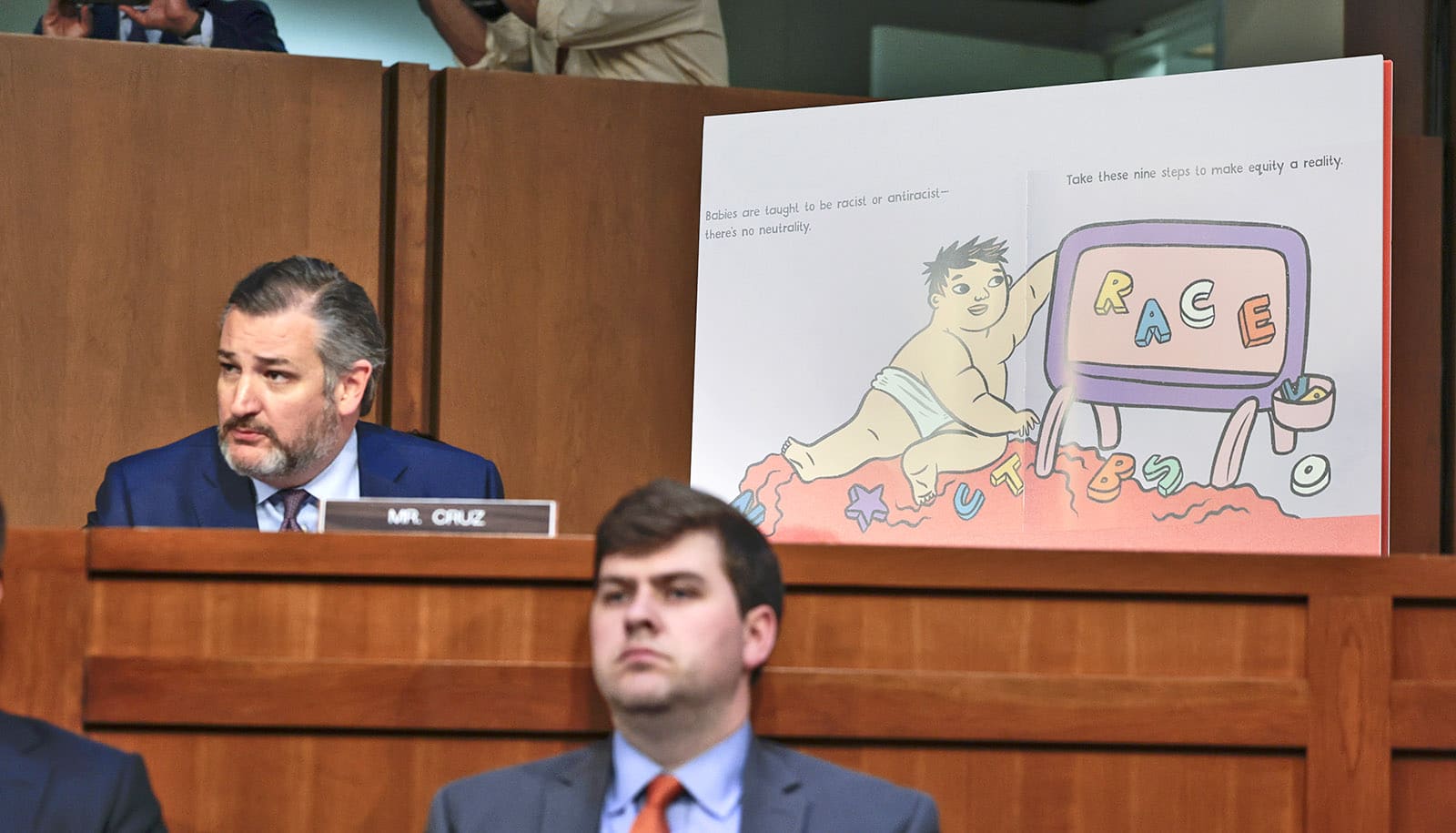“We sometimes treat the Black experience as though it is peripheral to the American experience, when in fact it is central,” says law professor Ralph Richard Banks.
“African American Studies is a step in the direction of the full integration of the Black experience into the American experience.”
The introduction of a new AP African American Studies course became part of the culture wars after Florida’s Governor DeSantis threatened to ban the class in his state. The College Board appeared to give in to political pressure after the official framework was made public on February 1, and topics such as Black Lives Matter, slavery reparations, and queer theory were deleted from the curriculum. (Some of these subjects were included on a list of topics that educators could suggest to students for end-of-the-year projects.)
Here, Ralph Richard Banks, co-founder and faculty director of the Stanford Center for Racial Justice, discusses the new AP course, the importance of critical thinking—and finding a way to consider all opinions to get away from no-win culture wars. He is the author of Is Marriage for White People? How the African American Marriage Decline Affects Everyone (Penguin Random House, 2012). His book, The Miseducation of America: The Crisis of College and the American Dream, is forthcoming in 2024.
The college board has been developing a new AP African American studies course over the last decade and it has been a piloted this year at certain schools. Can you say something about the introduction of this new AP course?
I think the idea of having an AP class for African American studies is a good thing. That is a good development because our nation has long struggled with recognizing the centrality of the African American experience to the American experience, in terms of history, culture, politics, law, literature—whatever your focus. We have, in many ways, long denied the centrality of the African American experience to the American experience. And recognizing African American studies through the AP program is a step in the direction of fully integrating the Black experience, or the African American experience, into the American experience. So I think this is a positive step. It’s a good thing. And students of all races will benefit from having the option to take an AP course and an exam in African American studies.
I understand it’s very popular already in the pilot stage. I read reports that faculty have had to add courses because they’ve been oversubscribed. So, there’s, I think, a hunger for this.
And I think that’s a really good thing. For too many years, there was neither a demand nor a supply of courses that focused on the African American experience or the lessons that the African American experience has to teach us about American history, law, and culture. Alex Haley, the author of Roots, is said to have remarked about our nation, that we all live in the same house, but stay in our own rooms. That’s a good description of the problem.
When I was in school, for example, there was not very much mention of issues particular to the African American experience in our courses. We might touch on a little bit here and there on race issues, but most of my involvement with authors like James Baldwin or Richard Wright or Langston Hughes, or the Harlem Renaissance and the great Black poets, most of that exposure actually came outside of school. I read James Baldwin, and for that matter, Malcolm X, on my own before I ever encountered him in the curriculum. We would have a better educational system if students could get more of that information within school rather than having to go outside of school to learn about these important issues.
Truth is a slippery thing, isn’t it, particularly when people are coming from such divergent viewpoints and cultural experiences?
People have different ideas about precisely what should be taught and what constitutes adequate coverage of any particular issue. When my oldest son was in elementary school, they talked about the Civil War and the ending of slavery, but they never talked about the demise of reconstruction and the rise of segregation, which we thought was a really grievous oversight. The Civil War ended slavery—but then about a decade later, the North capitulated and turned the South back over to the same people who had been in charge of slavery. You would never know that from what my child studied in school. Yet, I can also understand why the teachers did that; this was 5th grade, after all.
While praising the introduction of this AP course, which might prepare students for more rigorous African American studies at the college level, do you think issues of Black history should be incorporated into the general history curriculum so that all students benefit—not only those who qualify for AP?
We sometimes treat the Black experience as though it is peripheral to the American experience, when in fact it is central. I wrote a newspaper article long ago now, the headline of which was “Black History is American History.” And the point of it was that while Black History Month, (which started as Black History Week), is a good thing, the ultimate endpoint should be that we have issues of Black history fully integrated into American history. That should be the endpoint, to understand the extent to which the central issues involving the nature of our democracy have played out in a racial context, because the struggle with racism has defined our nation. We’ve been struggling with racism since the very beginning. African American Studies is a step in the direction of the full integration of the Black experience into the American experience.
There has been some controversy about Florida Governor DeSantis and his railing against this new AP course. The College Board released an official curriculum that, by news accounts, has been revised, stripped of much of the subject matter that angered DeSantis and conservatives, including critical race theory, LGBTQ issues, and the Black Lives Matter movement.
What people seem to be doing is taking positions based on their identity, rather than their knowledge of the facts, whether they’re DeSantis or one of his supporters or one of his critics. That said, the appearance here is that the College Board made a decision for political reasons, rather than substantive, pedagogical, or curriculum-oriented reasons. And that’s a bad thing.
But I should also say that the fact that the outcome here, if it’s politically motivated, may be a bad outcome, doesn’t mean that the concerns that prompted the criticism by DeSantis are wholly illegitimate. And this is what I think people miss. There may still be some legitimate reasons that are giving rise to proposed amendments, some legitimate things that people are reacting to. This is not a debate about what’s true versus what’s false. It’s a debate about the ways in which teachings of history can create narratives about society. Evidently the narrative of the nation embedded in the prior version is something that DeSantis and others were opposed to because it created a sort of orthodoxy about the nation that they could not support.
So, you think that in teaching this subject, academics need to be sensitive to varying perspectives?
Yes. I think that’s a legitimate concern frankly. Education has multiple functions. One of the functions is to acculturate people, express some sense of civic identity, sort of answer the question: What kind of nation are we? These are the kinds of issues that are at play here. And we have always had a struggle about that question. When I was a child, I learned the narrative that Black people had been oppressed in the past, by slavery, then they were freed by Abraham Lincoln, who was this great white man. Then there was a Civil Rights movement and Martin Luther King and Lyndon B. Johnson came together and passed these good laws. And now everything is fair and square. That narrative is one that as a Black child, it puts you in an odd position because the implication is that all of these Black people who live in these ghettos and who are impoverished and disadvantaged, they’re to blame for their own disadvantage because according to the narrative, things are fair and square now.
So, one can easily object to that narrative, but I can see why people would be upset about replacing that narrative, with some other narrative that says, “America was racist from the start, is still racist now, and the racism of society is the answer to the question of how to explain and account for racial disparities and inequalities.” It’s legitimate that people would be upset about that narrative as well. Replacing one simplistic narrative with another simplistic narrative is not the way forward.
What we need is to be able to embrace the paradoxes of our history and of our present. With slavery, for example, we need to recognize that while slavery was a bad thing, it wasn’t a new thing; there had been slavery in many different parts of the world, including parts of Africa. What made America special was this idea of individual rights and liberty, which enabled opposition to slavery and eventually its abolition. We should be able to acknowledge that there’s something real to that aspiration, to have individual rights, to have individual liberty, and to allow people the opportunity to not be confined or diminished based on who they are. So that’s a wonderful aspiration. But then it’s also true that the attempt to reconcile that aspiration with the reality of slavery contributed to this really pernicious idea of Black inferiority and this sort of culture where people use the idea of Blacks being inherently or innately inferior as a way to reconcile the reality of slavery with the aspiration for equality. That’s all a complicated story, and that’s actually the kind of stuff we want a curriculum to embody.
What about this idea that in teaching sensitive topics, students should not be made to feel bad. Is that a legitimate concern?
It is. I’ll give you an example. I’m a parent of three boys, and they have been in environments where people were teaching about gender, and they talked about it and presented readings about it in a way that would make boys categorically feel that they are the embodiment of toxic masculinity, and that whatever gender inequalities we have in society, they as boys are responsible. I wouldn’t want my son in a class like that. It would make him feel bad for things that other people who are men have done. Admittedly there’s a fine line between creating intellectual challenges for people and assaulting their identity. And so, when white parents say, “Oh, you’re branding my child a racist,” or making them feel responsible for racial atrocities throughout history, I don’t dismiss that out of hand. I take them at their word that they are concerned about that, and that’s not an illegitimate concern.
Florida is one of many states that now is restricting how teachers can talk about topics like race and sexual orientation and the governor has taken measures to exert control over schools and books that can be read. Threatening to ban this AP course is taking this to another level, isn’t it?
As an academic, I am never in favor of banning words, ideas, concepts. I just think that’s a bad idea, full stop. Academic freedom in the university context is certainly a principle that’s close to my heart and I think we need to genuinely embrace that and be all in on that. And in high schools as well, with juniors and seniors, you should be able to grapple with complicated issues involving politically, socially charged controversies. And teachers who are teaching AP courses should be professionals who have some knowledge of the area and can present complicated issues where there are big debates about how to interpret history or how to analyze an issue. The key is to keep the focus on the debates, the differing views, rather than try to assert some truth of the matter.
At the same time, you think there’s room for varying viewpoints in the academic tent?
The hard thing that we need to do is to recognize that sometimes other people can have different views, different sensitivities, different sensibilities, and that their views, sensitivities, and sensibilities can be legitimate. Just because someone’s on another side politically, that should not empower you or make you feel it’s appropriate to completely reject the legitimacy of everything they’re saying. You should try to understand where they are coming from and how they might see the issue and how they might experience it. And only when you do that, are we going to actually be able to move forward on these issues and get away from this culture war that leaves us all worse off.
I’m teaching critical race theory this spring, and I plan to teach the course more as a theologian than as a priest. If you’re in a class with a priest, he’s presenting the truth about the world. The doctrine is the truth. It’s not to be debated, it’s not to be quarreled with. You may question it, but only to eventually get to its truth. And if you are resisting the truth, once it’s been made plain, then you are a sinner. That’s the perspective of the priest. The theologian, in contrast, says, well, here’s the doctrine, and here’s the view of adherents to this doctrine. But here’s some criticisms of that doctrine. And here are some questions about that doctrine. The job of the theologian is to try to help you understand the doctrine, not to make you a believer in the doctrine.
So, there’s too much preaching on campuses and not enough room for debate and critical thinking?
Academia is a place, outside of the hard sciences where there are facts about the actual world that are indisputable, where we need to be theologians rather than priests. This is just another way of saying that in the world we’re in now where information has been democratized in the way that it has, and everyone can access Google and so forth, education is less about information, because people can access information anyway. Education really has to be about critical thinking. And that’s the great strength of American universities, and to some extent American education. We need to double down on that and really embrace critical thinking, which by definition means you’re engaging different perspectives, different viewpoints, and you’re seeing where they fit, where they clash, what the evidence is in favor of one side versus the other, all that sort of stuff. That’s what we need education to be about. And so, if we have an African American studies course that engages critical thinking, that’s a great thing. If we have an African American studies course that imposes an Orthodox view, about what’s quite true in American society, that’s actually not such a good thing.
Source: Stanford University



